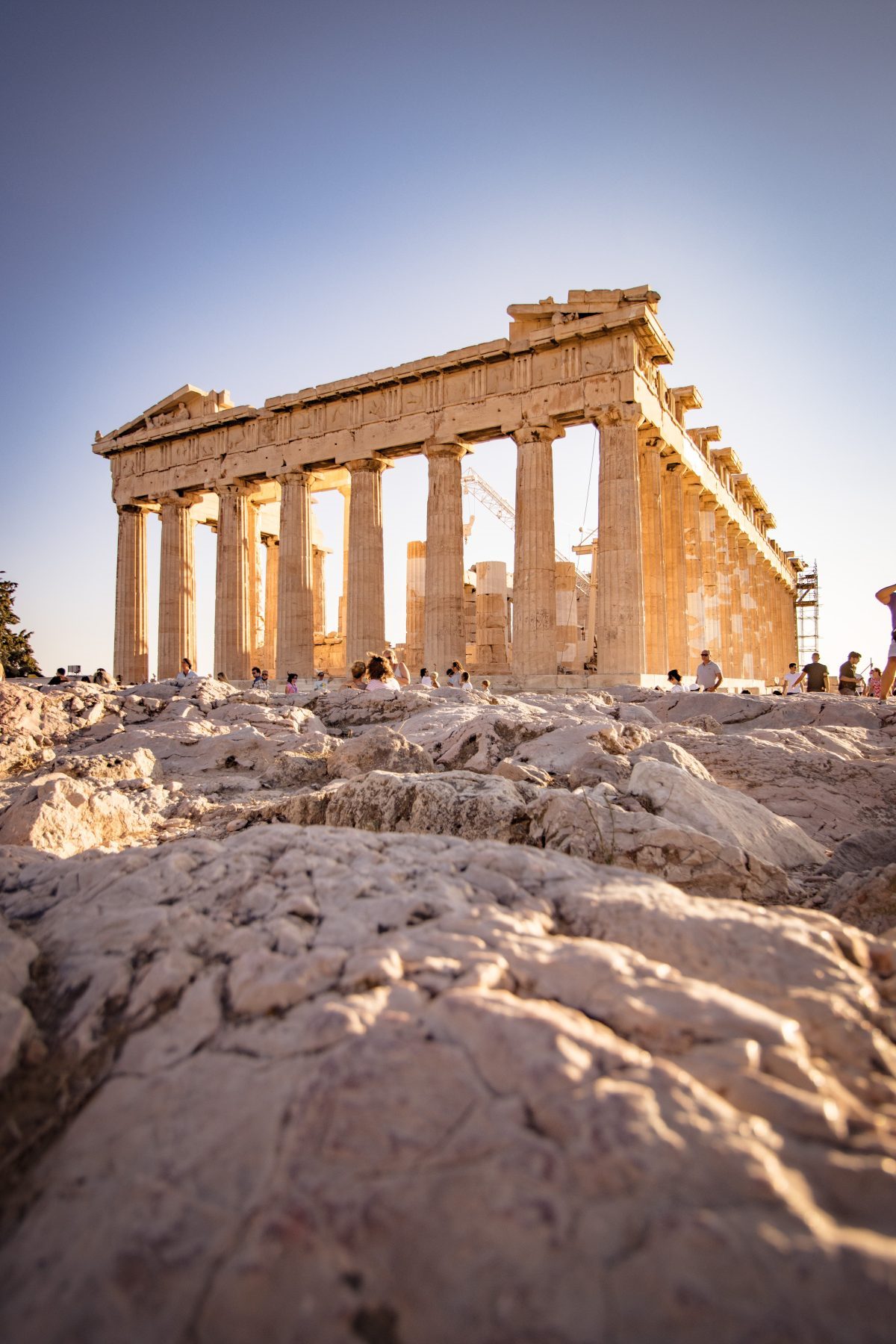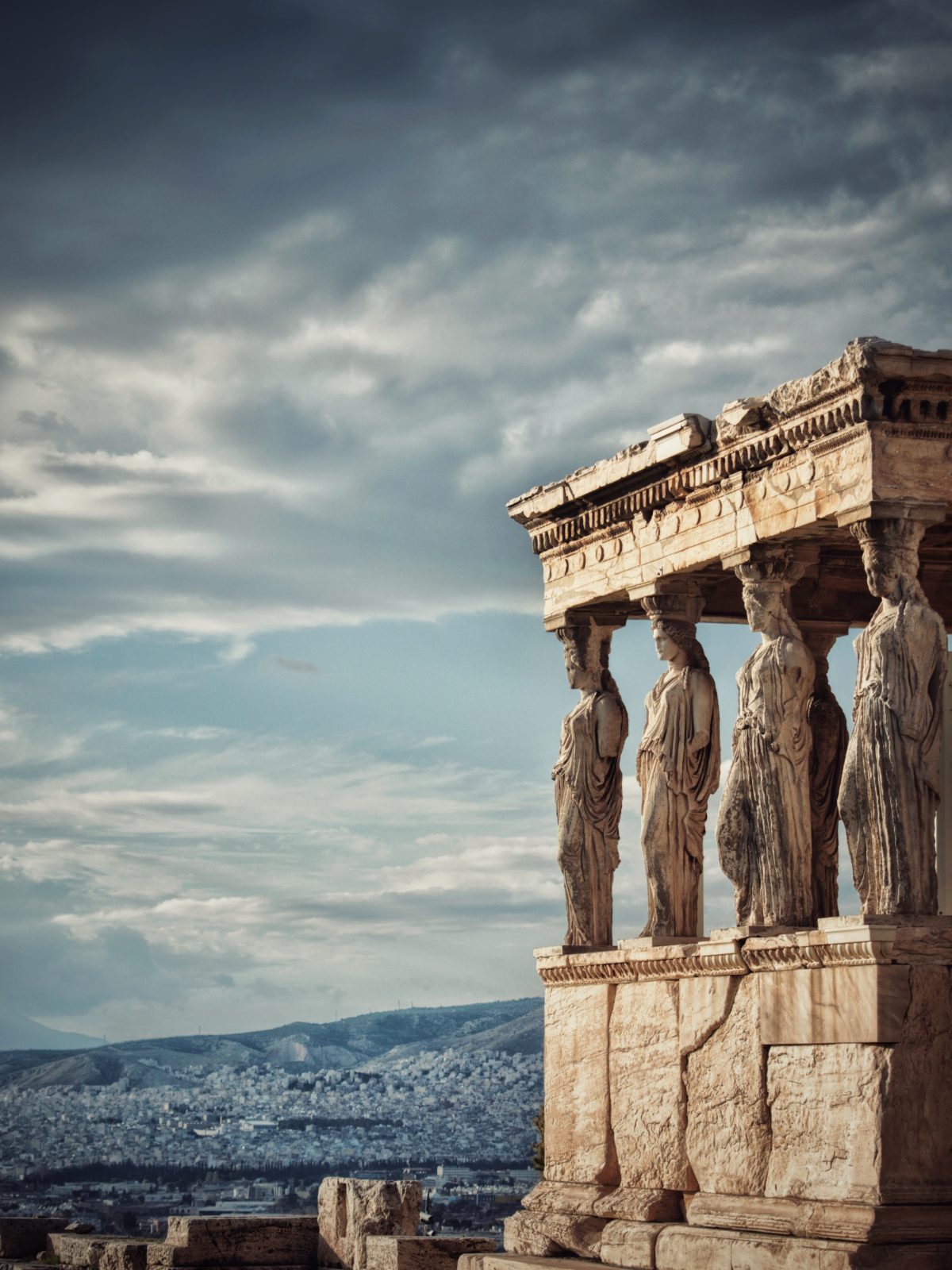How to Plan Your Athens Photographic Tour: Best Spots and Self-Guided Audio Options
Are you looking to capture the beauty and essence of Athens through photography? If so, the Athens: Best Photographic Spots Self-Guided Audio Tour is the perfect activity for you. With the help of a professional local photographer, you can explore Athens in a whole new way, discovering lesser-known tidbits and capturing stunning photographs at some of the city’s most iconic locations. In this guide, we’ll explore the details of this tour, including highlights, experiences, and how to book.Experience
This walking tour takes you from the Monument to the Unknown Soldier to Philopappos Hill, providing multiple opportunities to photograph Athens’ stunning architecture and landscapes. The tour lasts one hour, but you can take your time and linger at stops along the way if you’d like. The tour comes with unlimited use before and after your booking date, so you can explore the city at your own pace. Additionally, there is a virtual tour option available, making it easy to experience the tour from the comfort of your own home.Highlights
The Athens: Best Photographic Spots Self-Guided Audio Tour has several highlights that make it a must-try activity. First and foremost, the experienced photographer and producer, Nick Boutsikos, shares his knowledge of Athens’ history and culture while guiding you through the city. You’ll learn lesser-known tidbits and stories about the city that you may not have heard before. The tour is audio-guided, meaning you can take your time and explore the city at your own pace, without feeling rushed or overwhelmed. Moreover, the tour takes you through some of Athens’ most iconic locations, including Hadrian’s Arch, the Acropolis Museum, and the Church of Saint Sophia. You’ll be able to capture stunning photographs of these landmarks as well as other hidden gems that Nick will point out along the way. With insider tips on how to frame your shots and capture the best lighting, you’ll be able to improve your photography skills as well.Full Description
The Athens: Best Photographic Spots Self-Guided Audio Tour is perfect for anyone looking to explore Athens’ architecture and culture through photography. This walking tour, produced by a professional photographer and local resident, Nick Boutsikos, takes you on a journey through the heart of the city. Starting at the Monument to the Unknown Soldier and ending on Philopappos Hill, the tour covers some of the most picturesque spots in the city, providing ample opportunities for stunning photographs. Throughout the tour, Nick shares lesser-known tidbits and anecdotes about Athens’ past and present, helping you to understand the city’s history and culture better. The tour is audio-guided, providing you with the freedom to explore and take in the sights at your own pace. You can take as much time as you want at each stop, capturing the perfect shots and experiencing the city in a whole new way. As you stroll through Athens, Nick will point out famous landmarks like Hadrian’s Arch, the Acropolis Museum, and the Church of Saint Sophia. However, the tour also takes you off the beaten path, exploring hidden gems that you may not have discovered on your own. Nick provides insider tips on how to frame your shots and capture the best lighting, ensuring that you’ll return home with stunning photographs.Booking
Booking the Athens: Best Photographic Spots Self-Guided Audio Tour is easy. Simply visit the GetYourGuide website and select your preferred date and time. The cost of the tour is €15 per person, with unlimited use before and after your booking date. Once you’ve booked your tour, you’ll receive a confirmation email with instructions on how to access the virtual tour option. On the day of your tour, simply meet Nick at the designated meeting point, and he’ll provide you with everything you need to begin your photographic adventure. Book the tour hereBook Your Tour Now
Capturing the beauty and essence of Athens through photography is an experience like no other. With the Athens: Best Photographic Spots Self-Guided Audio Tour, you can explore the city through a whole new lens while improving your photography skills. Whether you’re a professional photographer or simply looking to capture stunning photos of Athens, this tour is an activity you won’t want to miss.
Frequently Asked Questions About Athens
1. What is Athens?
Athens is the capital and largest city of Greece. It has a long and rich history, and is considered one of the oldest cities in the world. It is known for its ancient landmarks and modern amenities, making it a popular destination for tourists from all over the world.
2. How do I get to Athens?
Athens is very accessible, with many international airlines flying into Athens International Airport. From there, visitors can take a taxi, public transportation or rent a car to get to their destination. There are also train stations and bus terminals for those who prefer to travel by land. Those coming by sea can also take a ferry from one of the nearby islands.
3. What are some popular attractions in Athens?
Athens is home to many ancient landmarks, such as the Acropolis, which houses the Parthenon, the Ancient Agora, the Temple of Olympian Zeus and the Theatre of Dionysus. Other must-see attractions include the National Archaeological Museum, the Benaki Museum, the Byzantine and Christian Museum, the Museum of Cycladic Art and the Stavros Niarchos Foundation Cultural Centre.
4. What is the weather like in Athens?
Athens has a Mediterranean climate, which means mild, wet winters and hot, dry summers. The best time to visit Athens is in the spring or fall, when the weather is pleasant and there are fewer crowds. Summer can be very hot and crowded, while winter can be rainy and cool.
5. What should I pack for my trip to Athens?
For a trip to Athens, it is important to pack comfortable shoes for walking, as there are many historic sites and museums to explore. Lightweight clothing is best for the summer months, while a light jacket or sweater is recommended for the cooler months. Sunscreen, sunglasses, and a hat are also helpful.
6. What is the local currency and do I need to exchange money?
The local currency in Athens is the Euro. There are many ATMs throughout the city where visitors can withdraw cash. Most shops and restaurants accept credit cards, but it is always a good idea to have some cash on hand for smaller transactions and tips.
7. What is the local language and do I need to know it?
The local language in Athens is Greek, but many people also speak English, especially in tourist areas. Basic communication in English is usually enough to get by, but it is always helpful to learn a few phrases in the local language, such as hello, thank you, and excuse me.
8. What is the food like in Athens?
The food in Athens is a mix of traditional Greek cuisine and modern Mediterranean fusion. Must-try dishes include moussaka, souvlaki, dolmades, tzatziki, and Greek salads. There are also many vegetarian and vegan options available, as well as international cuisine from around the world.
9. Is Athens a safe city?
Athens is generally a safe city, but precautions should always be taken when traveling in any unfamiliar place. Be aware of your surroundings, keep your belongings close and avoid walking alone late at night. Tourists should also be wary of scams and pickpocketing.
10. What is the nightlife like in Athens?
Athens has a vibrant nightlife scene with many bars and clubs open until the early hours of the morning. There are many different neighborhoods to explore, each with its own unique vibe. The most popular areas for nightlife are Gazi, Psirri, and Kolonaki.
11. Can I travel to nearby islands from Athens?
Yes, there are many ferries and boats that depart from Athens to nearby islands such as Mykonos, Santorini, and Crete. These can be booked in advance, and offer a scenic and relaxing way to explore the Greek islands.
12. Do I need a visa to visit Athens?
Visa requirements vary depending on the visitor’s country of origin. Most European Union citizens do not require a visa to visit Athens. Visitors from other countries should check with their local embassy or consulate for visa requirements.
13. What is the best way to get around Athens?
Athens has a comprehensive public transportation system, including buses, metro, and tram, which are efficient and affordable. Taxis are also readily available, although they can be more expensive. For those who prefer to explore the city on foot, Athens is very pedestrian-friendly, with many historic landmarks within walking distance of each other.
14. What is the best time of year to visit Athens?
The best time to visit Athens is in the spring (March to May) and fall (September to November), when the weather is mild and the crowds are smaller. Summer (June to August) can be very hot and crowded, while winter (December to February) can be rainy and cool.
15. What is the emergency number in Athens?
The emergency number in Athens and throughout Greece is 112. This number can be used for emergencies such as medical assistance, fire department, and police.

How to spend your time as a tourist in Athens
One of the oldest cities in the world, Athens attracts millions of travelers from all over the world every year. It is a beautiful city that is rich in history, culture, and gastronomy. Here is a comprehensive guide on how to spend your time as a tourist in Athens.1. Visit the Acropolis Museum (H3)
The Acropolis Museum is a must-visit when traveling to Athens. The museum displays artifacts from the Acropolis, which provides visitors with an in-depth understanding of the city’s history. The museum has an extensive collection of over 4,000 objects from the Greek Bronze Age to Roman and Byzantine Greece. Visitors can also enjoy a stunning view of the Acropolis from the museum’s glass floor. The tickets are reasonably priced, and visitors can easily spend a few hours in the museum.2. Explore the Acropolis (H3)
The Acropolis is the most famous landmark in Athens and a UNESCO World Heritage Site. It is home to the renowned Parthenon temple and many other ancient structures, including the Propylaea, the Erechtheion, and the Temple of Athena Nike. Visitors can climb up the hill to explore the Acropolis or take a guided tour to learn about the history of the site. The ticket price varies depending on the season, but it is worth every penny.3. Discover the Ancient Agora (H3)
The Ancient Agora was the heart of ancient Athens, where philosophers, politicians and scholars would meet, discuss and exchange ideas. The area was also an important commercial center. Today, visitors can explore the ruins of the ancient structures, including the Temple of Hephaestus, the Stoa of Attalos, and the ruins of the Agora market. Guided tours are also available at an additional cost.4. Stroll around Plaka (H3)
Plaka is the oldest neighborhood in Athens and one of the top tourist attractions. Visitors can stroll around the narrow streets and enjoy the neoclassical architecture, colorful houses, and small shops selling handmade crafts, souvenirs, and local delicacies. Plaka also offers an excellent opportunity to taste some of the best traditional Greek dishes and enjoy a glass of ouzo at one of the many traditional taverns.5. Explore the National Archaeological Museum (H3)
The National Archaeological Museum is the largest museum in Greece and one of the most important archaeological museums in the world. The museum has an extensive collection of artifacts from prehistory to late antiquity, including sculptures, pottery, jewelry, and artifacts from the Mycenaean and Minoan civilizations. Visitors can easily spend a few hours exploring the museum and learning about the ancient history of Greece.6. Attend a Greek theater performance (H3)
Attending a Greek theater performance is a unique experience that every visitor must try when in Athens. The Odeon of Herodes Atticus is an ancient stone theater located on the south slope of the Acropolis. During the summer months, the theater hosts live performances, including ancient Greek dramas and modern plays. The tickets are reasonably priced, and the performances are performed in Greek with English subtitles.7. Visit the Temple of Olympian Zeus (H3)
The Temple of Olympian Zeus is one of the largest temples in Greece, and it took more than 700 years to build. Today, only 16 of the original 104 columns remain. Visitors can explore the ruins of the temple and learn about its fascinating history. The temple is located near the Acropolis and the National Gardens, making it a perfect place for a walking tour.8. Experience the nightlife in Athens (H3)
Athens is famous for its vibrant nightlife, with numerous bars, clubs, and live music venues. Visitors can enjoy everything from traditional Greek music to modern electronic beats. The most popular areas for nightlife are Gazi, Monastiraki, and Psirri. It’s important to note that Greek people tend to start the night late, so don’t be surprised if you don’t see many people out until after midnight.Book Your Tour Now (H3)
Athens is a city filled with history, culture, and gastronomy. Visitors can explore some of the most famous landmarks in the world, taste traditional Greek dishes, and experience its vibrant nightlife. Let this guide help you plan your trip to Athens and make the most out of your visit.Table of Contents

